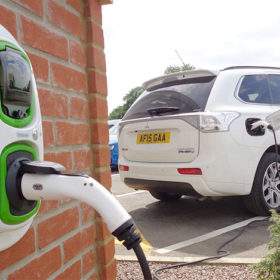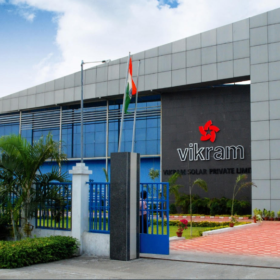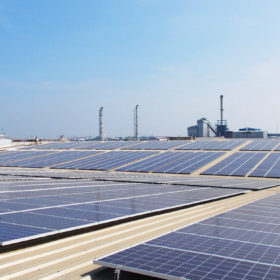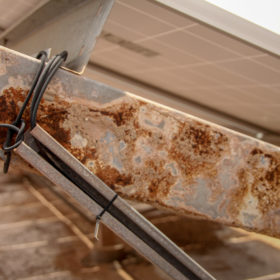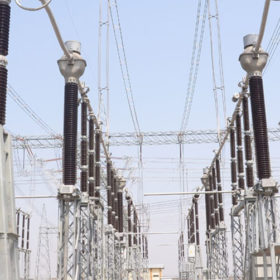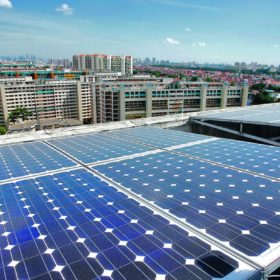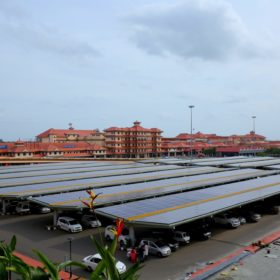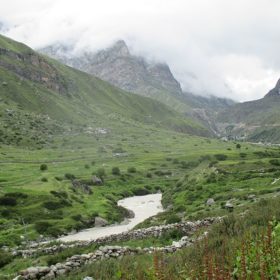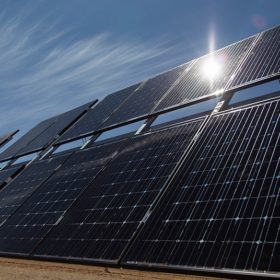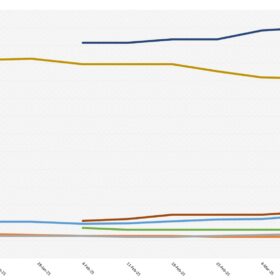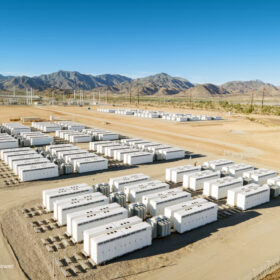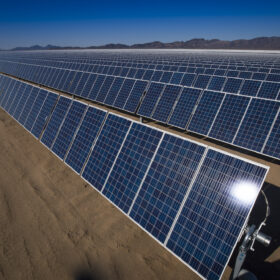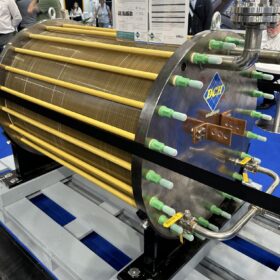Exicom and BHEL sign MoU on EV charging infrastructure
Under the partnership, projects will be sought on nomination as well as through competitive bidding. Exicom shall also help state-owned Bharat Heavy Electricals Limited (BHEL) to set up electric vehicle (EV) charger manufacturing facility for e-mobility business.
Vikram Solar panels are Black & Veatch certified
After a detailed review of solar panels manufactured at Vikram Solar’s plant in West Bengal, US-based Black & Veatch concluded that its modules successfully meet the requirements of respective international standards.
Belectric commissions 26 MW rooftop solar projects for Cleantech Solar
The German EPC contractor is also building a 250 MW AC ground-mounted solar farm in Karnataka. Overall, with an already installed capacity of more than 370 MWp and other projects under implementation, it expects to cross 1 GW of installed capacity in India by the year end.
Tackling India’s solar waste challenge
As the nation aims for 100 GW of solar capacity by 2022 it is staring at up to 1.8 million tons of PV waste by 2050. A solar waste management seminar organized by consultancy Bridge To India in New Delhi brought stakeholders together to discuss how a PV waste management system could help.
US investor KKR and Singapore’s GIC own 42% stake in Sterlite Power’s grid trust
KKR has also applied to become a co-sponsor of the power infrastructure investment trust and plans to acquire additional 15% stake in it. The deal marks KKR’s first infrastructure investment in Asia.
BHEL tenders 170 KW grid-connected rooftop solar projects in Haryana
State-owned Bharat Heavy Electricals Limited (BHEL) has invited bids for supply, installation and commissioning of grid-connected solar rooftop PV plants of cumulative capacity 170 KWp at four locations in Haryana. The projects would be awarded through bidding followed by reverse auction. The last date for bid submission is May 10.
Tata Power added 200 MW renewables in FY 2018-19, another 400 MW in pipeline
The company has identified renewables, transmission and distribution, and value-added businesses such as rooftop solar, smart metering, electric vehicle (EV) charging stations and micro grids in rural areas as key growth areas.
Bidding extended for 40 MW solar projects at Uttarakhand dams
Bidding for 27 MW solar project at Haripura dam and 13 MW project at Tumariya dam could not be completed as scheduled due to implementation of code of conduct for General Elections Lok Sabha 2019. The revised bid submission deadline is now May 25.
Siemens Gamesa bags 250 MW solar EPC project from Sprng Energy
Spanish-German renewable energy developer Siemens Gamesa—which developed India’s first wind/solar hybrid plant—has commissioned over 400 MW solar capacity in India.
Bharat Heavy Electricals to work with ARAI on e-mobility projects
Government-owned Bharat Heavy Electricals and the Automotive Research Association of India will combine their respective strengths in technology development and testing and certification to work on electric and trolley buses, EV chargers and battery and charger testing.

